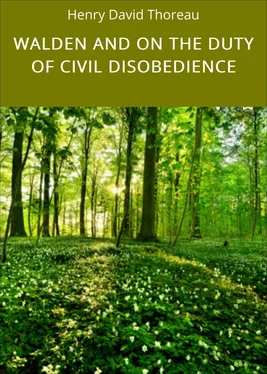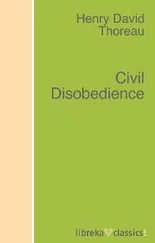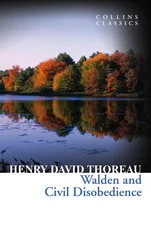lived a more simple and meagre life than the poor. The ancient
philosophers, Chinese, Hindoo, Persian, and Greek, were a class than
which none has been poorer in outward riches, none so rich in inward.
We know not much about them. It is remarkable that _we_ know so much of
them as we do. The same is true of the more modern reformers and
benefactors of their race. None can be an impartial or wise observer of
human life but from the vantage ground of what we should call voluntary
poverty. Of a life of luxury the fruit is luxury, whether in
agriculture, or commerce, or literature, or art. There are nowadays
professors of philosophy, but not philosophers. Yet it is admirable to
profess because it was once admirable to live. To be a philosopher is
not merely to have subtle thoughts, nor even to found a school, but so
to love wisdom as to live according to its dictates, a life of
simplicity, independence, magnanimity, and trust. It is to solve some
of the problems of life, not only theoretically, but practically. The
success of great scholars and thinkers is commonly a courtier-like
success, not kingly, not manly. They make shift to live merely by
conformity, practically as their fathers did, and are in no sense the
progenitors of a nobler race of men. But why do men degenerate ever?
What makes families run out? What is the nature of the luxury which
enervates and destroys nations? Are we sure that there is none of it in
our own lives? The philosopher is in advance of his age even in the
outward form of his life. He is not fed, sheltered, clothed, warmed,
like his contemporaries. How can a man be a philosopher and not
maintain his vital heat by better methods than other men?
When a man is warmed by the several modes which I have described, what
does he want next? Surely not more warmth of the same kind, as more and
richer food, larger and more splendid houses, finer and more abundant
clothing, more numerous incessant and hotter fires, and the like. When
he has obtained those things which are necessary to life, there is
another alternative than to obtain the superfluities; and that is, to
adventure on life now, his vacation from humbler toil having commenced.
The soil, it appears, is suited to the seed, for it has sent its
radicle downward, and it may now send its shoot upward also with
confidence. Why has man rooted himself thus firmly in the earth, but
that he may rise in the same proportion into the heavens above?—for the
nobler plants are valued for the fruit they bear at last in the air and
light, far from the ground, and are not treated like the humbler
esculents, which, though they may be biennials, are cultivated only
till they have perfected their root, and often cut down at top for this
purpose, so that most would not know them in their flowering season.
I do not mean to prescribe rules to strong and valiant natures, who
will mind their own affairs whether in heaven or hell, and perchance
build more magnificently and spend more lavishly than the richest,
without ever impoverishing themselves, not knowing how they live,—if,
indeed, there are any such, as has been dreamed; nor to those who find
their encouragement and inspiration in precisely the present condition
of things, and cherish it with the fondness and enthusiasm of
lovers,—and, to some extent, I reckon myself in this number; I do not
speak to those who are well employed, in whatever circumstances, and
they know whether they are well employed or not;—but mainly to the mass
of men who are discontented, and idly complaining of the hardness of
their lot or of the times, when they might improve them. There are some
who complain most energetically and inconsolably of any, because they
are, as they say, doing their duty. I also have in my mind that
seemingly wealthy, but most terribly impoverished class of all, who
have accumulated dross, but know not how to use it, or get rid of it,
and thus have forged their own golden or silver fetters.
If I should attempt to tell how I have desired to spend my life in
years past, it would probably surprise those of my readers who are
somewhat acquainted with its actual history; it would certainly
astonish those who know nothing about it. I will only hint at some of
the enterprises which I have cherished.
In any weather, at any hour of the day or night, I have been anxious to
improve the nick of time, and notch it on my stick too; to stand on the
meeting of two eternities, the past and future, which is precisely the
present moment; to toe that line. You will pardon some obscurities, for
there are more secrets in my trade than in most men’s, and yet not
voluntarily kept, but inseparable from its very nature. I would gladly
tell all that I know about it, and never paint “No Admittance” on my
gate.
I long ago lost a hound, a bay horse, and a turtle-dove, and am still
on their trail. Many are the travellers I have spoken concerning them,
describing their tracks and what calls they answered to. I have met one
or two who had heard the hound, and the tramp of the horse, and even
seen the dove disappear behind a cloud, and they seemed as anxious to
recover them as if they had lost them themselves.
To anticipate, not the sunrise and the dawn merely, but, if possible,
Nature herself! How many mornings, summer and winter, before yet any
neighbor was stirring about his business, have I been about mine! No
doubt, many of my townsmen have met me returning from this enterprise,
farmers starting for Boston in the twilight, or woodchoppers going to
their work. It is true, I never assisted the sun materially in his
rising, but, doubt not, it was of the last importance only to be
present at it.
So many autumn, ay, and winter days, spent outside the town, trying to
hear what was in the wind, to hear and carry it express! I well-nigh
sunk all my capital in it, and lost my own breath into the bargain,
running in the face of it. If it had concerned either of the political
parties, depend upon it, it would have appeared in the Gazette with the
earliest intelligence. At other times watching from the observatory of
some cliff or tree, to telegraph any new arrival; or waiting at evening
on the hill-tops for the sky to fall, that I might catch something,
though I never caught much, and that, manna-wise, would dissolve again
in the sun.
For a long time I was reporter to a journal, of no very wide
circulation, whose editor has never yet seen fit to print the bulk of
my contributions, and, as is too common with writers, I got only my
labor for my pains. However, in this case my pains were their own
reward.
For many years I was self-appointed inspector of snow storms and rain
storms, and did my duty faithfully; surveyor, if not of highways, then
of forest paths and all across-lot routes, keeping them open, and
ravines bridged and passable at all seasons, where the public heel had
testified to their utility.
I have looked after the wild stock of the town, which give a faithful
herdsman a good deal of trouble by leaping fences; and I have had an
eye to the unfrequented nooks and corners of the farm; though I did not
always know whether Jonas or Solomon worked in a particular field
to-day; that was none of my business. I have watered the red
huckleberry, the sand cherry and the nettle tree, the red pine and the
black ash, the white grape and the yellow violet, which might have
Читать дальше












